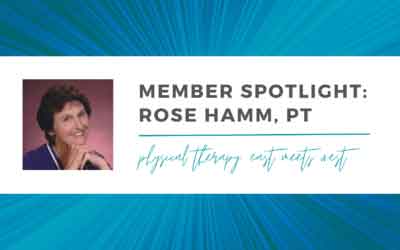The Emerging Role of AI in Wound Care: A Clinician’s Perspective
By Dr. Jean Archer, DPM,FACCWS, FASPS, FACPM
As a wound care specialist and podiatrist, I know how critical timely, informed intervention is for patients with chronic wounds. We are now seeing artificial intelligence (AI) emerge as a powerful ally in our mission to improve outcomes, reduce disparities, and enhance efficiency—especially in high-risk and underserved populations.
Here’s how AI is transforming wound care today:
Image-Based Wound Assessment: AI platforms use computer vision to identify tissue types (e.g., granulation, slough, necrosis), calculate wound dimensions, and quantify healing trajectories with a high degree of accuracy. Studies show that these tools improve interrater reliability and reduce documentation errors in clinical practice.
Predictive Analytics: Machine learning models can analyze clinical, demographic, and imaging data to predict wound healing outcomes and risks for complications like infection or amputation. For example, AI-driven risk stratification has demonstrated potential in forecasting non-healing trajectories in diabetic foot ulcers.
Clinical Decision Support: AI algorithms can recommend appropriate interventions—such as dressing types or need for debridement—based on wound characteristics and patient history. These systems support standardized, evidence-based decision-making across care settings.
Remote Monitoring & Telehealth: In rural or underserved areas, AI-enabled platforms allow patients or caregivers to upload wound photos through secure apps. These are automatically analyzed and triaged, allowing clinicians to intervene remotely, reducing care delays and improving access.
AI is not here to replace clinicians—it’s here to empower us. By enhancing clinical precision and enabling earlier interventions, AI can help us reduce avoidable amputations, optimize care coordination, and address long-standing disparities in wound care delivery.
As leaders in this space, ACCWS has a unique opportunity to help shape the responsible integration of AI into clinical workflows, ensuring technology serves both clinicians and patients in meaningful ways.
References
1. Wang, C., et al. (2021). Artificial intelligence in wound image analysis: A systematic review and meta-analysis. NPJ Digital Medicine, 4(1), 1-12. https://doi.org/10.1038/s41746-021-00455-0
2. Goyal, M., et al. (2020). Prediction of healing in diabetic foot ulcers using artificial intelligence: A review. Computers in Biology and Medicine, 129, 104163. https://doi.org/10.1016/j.compbiomed.2020.104163
3. Kirsner, R. S., et al. (2019). Digital imaging and artificial intelligence in wound care: A position paper from the AAWC. Wound Repair and Regeneration, 27(5), 478–488. https://doi.org/10.1111/wrr.12724
4. Wang, L., et al. (2022). AI-driven clinical decision support for chronic wound management: Challenges and perspectives. International Wound Journal, 19(4), 884–893. https://doi.org/10.1111/iwj.13666
5. Swift Medical. (2023). Using AI to support remote wound monitoring. https://www.swiftmedical.com
6. Tissue Analytics. (2022). AI-driven wound assessment and tracking platform. https://www.tissue-analytics.com
About the Author
Dr. Jean Archer, DPM, FACPM, CWS, is a board-certified podiatrist and certified wound specialist. She serves as a senior instructor in the Department of Orthopaedics at the University of Rochester Medical Center, where she specializes in limb preservation and advanced wound care. Dr. Archer is dedicated to improving outcomes for patients in underserved communities and advancing clinical education and equity in wound care.
Dr. Jean Archer, DPM, FACPM, CWS – Wound Care Specialist and Podiatrist


